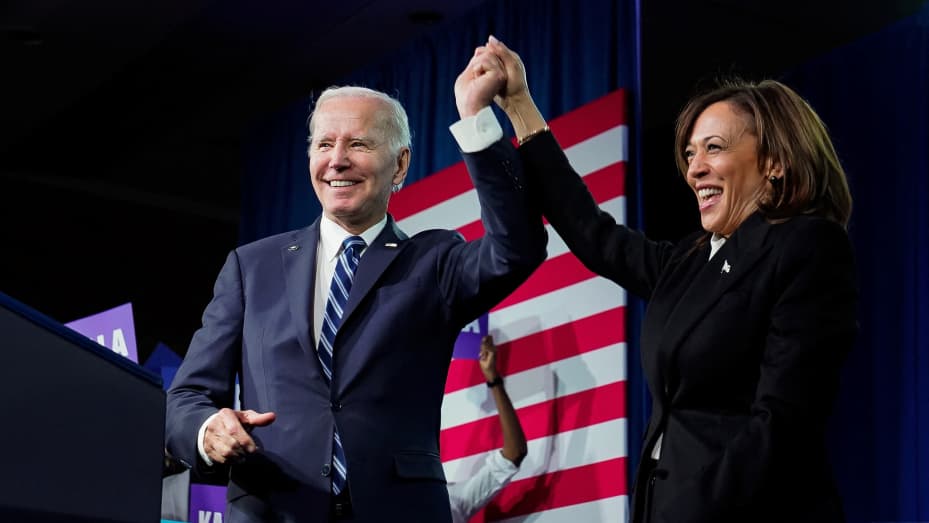The Democratic Party is on the verge of making a historic gamble by potentially nominating Vice President Kamala Harris as its presidential candidate for the 2024 election. This decision marks a significant bet that a Black woman can overcome the enduring challenges of racism, sexism, and her own political hurdles to defeat Republican candidate Donald Trump.

Historically, the United States has seen only one Black president and has yet to elect a woman to the highest office. This reality has led to concerns among some Black voters and party members about Harris’s ability to surmount the deeply entrenched barriers in U.S. politics.
“Will her race and gender be an issue? Absolutely,” said LaTosha Brown, a political strategist and co-founder of the Black Voters Matter Fund. “It’s not just about overcoming Trump; it’s about overcoming a system that has historically sidelined women of color.”
Harris’s candidacy would face numerous challenges. If she were promoted to the top of the ticket, she would have a mere three months to campaign effectively and rally the Democratic base and donors. Uniting a divided party in such a short time frame would require immense effort and strategic planning.
Despite these challenges, many Democrats are enthusiastic about Harris’s prospects. Her candidacy is seen as a bold move that could energize the party’s base, particularly among younger voters and progressives. Harris’s background as a prosecutor and her leadership on key issues like abortion rights position her as a strong contender who could resonate with a diverse electorate.
However, some Democratic lawmakers have expressed concerns about President Joe Biden’s ability to secure a second term. At 81, Biden faces doubts about his mental and physical stamina to endure a rigorous campaign and another four years in office. These concerns have sparked discussions about the party’s future and the need for fresh leadership.
Biden, however, remains steadfast in his intention to run for re-election. On Friday, he reiterated his commitment to the campaign and stated that he would resume active campaigning after recovering from COVID-19. Harris, meanwhile, has been advocating for Biden’s re-election, making the case for his leadership at a recent fundraiser.
Harris’s potential candidacy brings both opportunities and challenges. As a leader on abortion rights, she connects with younger voters and the progressive wing of the party. Her legal background and experience as a prosecutor provide her with the skills needed to effectively debate and counter Trump’s rhetoric. Moreover, her ability to consolidate the party’s fundraising machine and energize voters could prove crucial in a highly contested election.
If Harris were to face Trump and his running mate, Senator J.D. Vance, the contrasts would be stark. Harris’s vision for America, reflecting its new and diverse reality, stands in opposition to Trump’s platform. Her candidacy could be a galvanizing force, mobilizing voters who seek change and progress.
In the end, the Democratic Party’s decision to potentially nominate Harris represents a significant moment in American politics. It is a gamble that underscores the party’s commitment to diversity and progress, even as it faces the immense challenges of uniting behind a candidate who could make history.
Culled from Reuters



